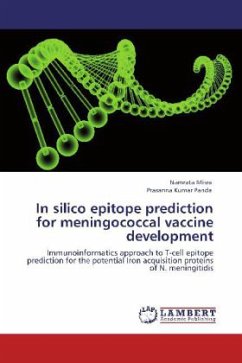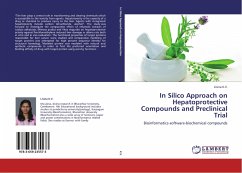The majority of invasive meningococcal disease in developed countries is caused by Neisseria meningitidis with a serogroup B capsule. Despite, the availability of vaccines for other serogroups since the 1960s, no broadly effective vaccine has been developed for prevention of meningococcal serogroup B disease. However, with the increasing availability of microbial genome sequence information along with the recent advancements in the field of bioinformatics, it is now possible to identify potential protein targets of immune response that would certainly be useful in reducing the time and cost involved in the traditional study of immunology. With this in mind, this book comprehensively illustrates the utility of existing computational resources for in silico epitope prediction and immune system modeling with special reference to N. meningitidis serogroup B vaccine development.
Bitte wählen Sie Ihr Anliegen aus.
Rechnungen
Retourenschein anfordern
Bestellstatus
Storno








